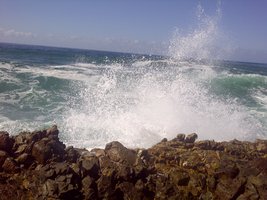
« Wet Theory » : Creative Writing as Affective Lever in Feminist & Queer Criticism
Avant le 30 septembre
Roundtable for the Northeast Modern Language Association (NeMLA).
Please send 300-word abstract & CV to Meridith Kruse (krusem@newschool.edu) or Alec Magnet (amagnet@gmail.com)
by September 30th, 2013. The NeMLA will be held in Harrisburg, Pennsylvania, April 3-6, 2014.
Over the past two decades, feminist and queer critics have increasingly
integrated forthright expressions of their own affective investments into
their writing. This forthrightness has inspired a wealth of deviations from
the norms of formal, scholarly discourse but little consideration has been
given to how these experiments have contributed to theoretical knowledge.
In an attempt to address this oversight, this roundtable seeks papers that
explore how moments of “creative writing” in feminist and queer criticism -
fictionalized dialogues, fannish effusions, speculative scenarios,
multi-media/formal experiments, and personal narratives – function as
methods for engaging affective experience and developing theoretical
insight. We are interested in how moments of creative writing can not only
provide an alternative to dry academic prose but also spark alternative
forms of knowledge. We are also interested in papers that investigate the
complex range of reader-responses that such moments of affect-laden
creative writing can produce. As Eve Sedgwick writes in
*Tendencies*(1993), critics who not only take pleasure in their work
but “openly display it” frequently provoke strong reactions in their audience including “violent repudiations” and can activate a “circuit of contagion, fun, voyeurism, envy, participation, and stimulation” (19). What feelings are stirred up among readers of experimental criticism – and how do such emotions impact the reception of such work ? Do scholars sacrifice
necessary professional distance by admitting their lack of emotional
neutrality ? What is the relationship of this type of creative writing to
the legacy of second-wave feminism’s focus on “the personal is political” ?
What are the theoretical insights that have been gained by using creative
writing as an affective lever in feminist and queer criticism ? This
roundtable seeks papers that explore such questions in relation to feminist
and queer criticism to address the lack of reflection about the impact of
this important experimental work.
Fichiers de syndication :
Statistiques :
Le site contient 4383 articles
